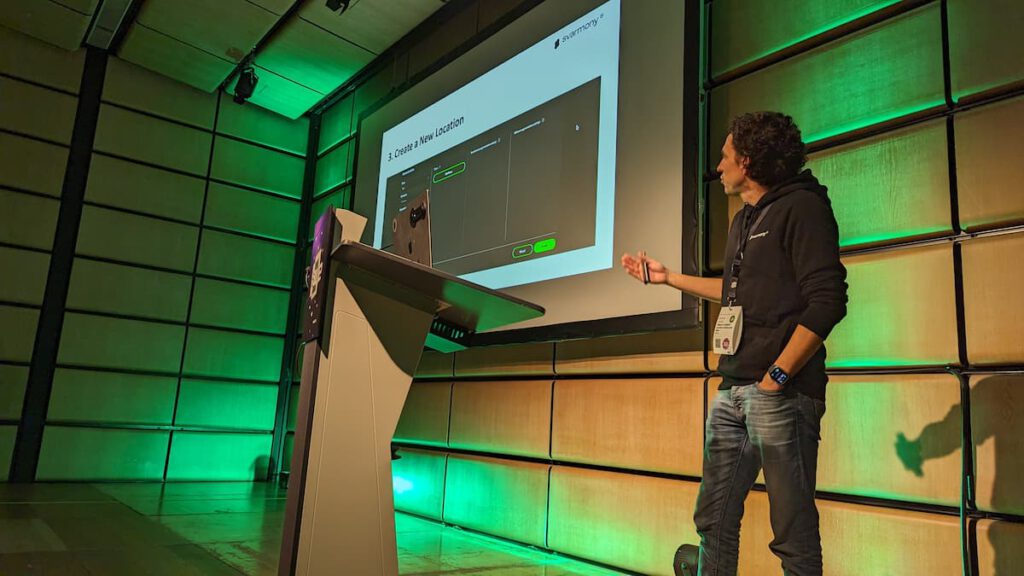



Interview
Wie lassen sich full-VR-Experiences, die bereits auf der Quest-Plattform laufen, auf Apples Vision Pro portieren? Für das Team von Raum ist völlig klar: Apples VisionOS ist die Plattform, auf der sie in Zukunft zusätzlich stattfinden müssen. Gesagt getan. Erste Prototypen laufen bereits auf der Brille, die ich sogar schon testen durfte. Zwei Challenges gibt es noch zu bewältigen. Denn noch bietet Apple kein eigenes Avatar-System. Und für die Bewegungssteuerung auf VisionOS gibt es quasi keine Best Practises. Das Team von Raum arbeitet darum intensiv an einer Lösung, wie man sich in riesigen Locations im Metaverse fortbewegt, während das Zugangsgerät mit aller Macht die nutzenden Person an die Couch fesseln will.
News
- Neues MR Game von Meta: Cryptic Cabinet
- Meta in Korea
- Apple: >1.000 native VisionOS-Apps im AppStore
- Apple: Risse in der Apple Vision Pro
- Mark Gurman: Apples Smart Glass Ambitionen
- Sony: PSVR2 bald als PCVR-Headset?
- Sony: 900 Entlassungen bei Sony Interactive
- HTC auf der MWC: HTC Vive Elite Business
Shownotes
- NEWS
- Meta’s New Demo Shows Players & Devs What Compelling MR Can Look Like
- Meta & LG Confirm „Next-Gen XR Device“ Partnership
-
 https://twitter.com/gregjoz/status/1757533581495382496
https://twitter.com/gregjoz/status/1757533581495382496
- Vision Pro owners are reporting a mysterious crack in the front glass – The Verge
- Mark Gurman: Apples Smart Glass Ambitionen
- Sony: PSVR2 bald als PCVR-Headset?
- Sony: 900 Entlassungen bei Sony Interactive
- HTC auf der MWC: HTC Vive Elite Business
- INTERVIEW
- Webseite: Raum
- LinkedIn: Sebastian Kühne
- LinkedIn: Rolf Meßmer
- HINWEISE
- HINWEIS: Discord Community
- Dieser Podcast ist eine Droid Boy Produktion







